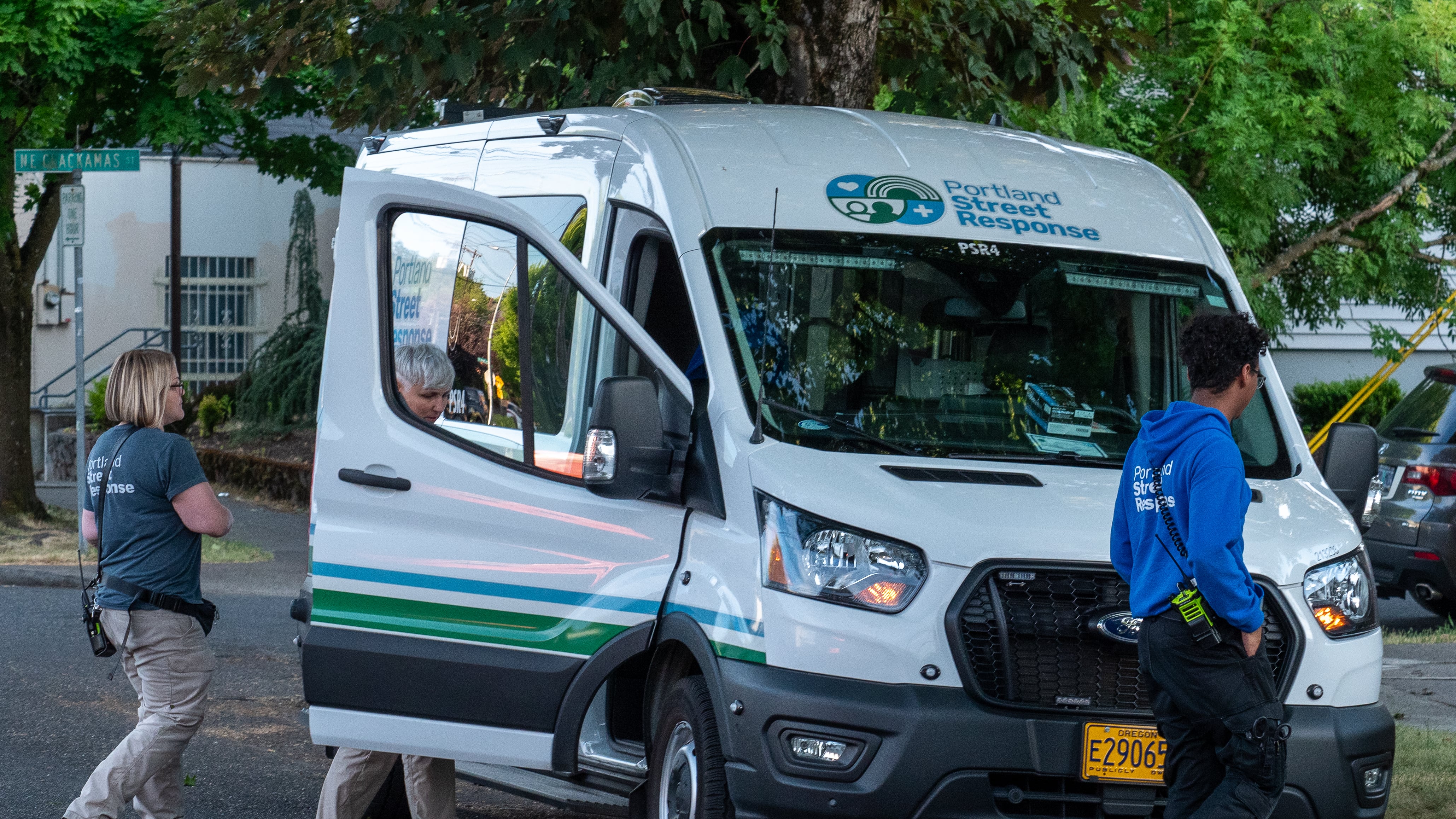Last week, The Oregonian reported that City Commissioner Rene Gonzalez, who oversees Portland Fire & Rescue, was weighing a $3.1 million cut to Portland Street Response, a popular initiative that sends unarmed crisis response teams rather than police officers to Portlanders in mental distress.
Fire bureau staff on Tuesday morning explained that the proposed cut to the program may be necessary to help reduce an $11 million operational budget deficit faced by the bureau, largely due to soaring overtime costs. Portland Street Response is funded partly by general fire bureau dollars, which sometimes creates friction between the bureau and the program for both fiscal and cultural reasons.
Commissioner Carmen Rubio during a Tuesday morning City Council work session on the topic offered an escape hatch: rerouting $3 million from earned interest on the revenue of the Portland Clean Energy Fund tax to fill Portland Street Response’s budget until the city can find alternative funding sources for the program.
“I just want you to know that I’m very interested in working with our city budget office on this, and specifically to look at earned interest on the collected and confirmed PCEF surcharge revenue during this time, while we’re looking for more funding to stabilize the program for the long-term,” Rubio said Tuesday. “It’s independent from the resource funds of PCEF. I’m proposing a minimum of $3 million as a one-time location to make sure PSR has the runway to figure out how to stabilize it long term.”
PCEF, the city’s clean energy tax, has brought in a whopping $587 million since 2018 for use on climate investments. Late last year, however, after learning the fund was expected to bring in an unanticipated $540 million over the next five years, Rubio announced a plan to funnel those excess dollars into city bureaus that are struggling with budget deficits, including the Transportation Bureau.
According to Rubio chief of staff Jillian Schoene, the projected earned interest from this fiscal year’s PCEF tax revenues is $12 million. Should Gonzalez and the fire bureau prove unable to find $3 million to maintain current Portland Street Response funding, Rubio proposes rerouting $3 million of that to the program.
Portland Street Response has a $10 million budget this year, but about $5 million of that comes from one-time dollars that are soon set to expire. The $3 million cut to the program proposed by the fire bureau would be a reduction of general fund dollars that PSR receives from the fire bureau budget. The fire bureau and Gonzalez pledged Tuesday morning to explore all options to find alternative funding sources for Portland Street Response so it can maintain its current service levels and expand in the future. (Gonzalez’s office says that the mayor’s office directed the bureau to envision three funding scenarios under which the bureau shaved millions off of its budget, leaving it little choice but to float making cuts to PSR.)
While the fate of the program is an important issue for the unhoused community—the population which most benefits from the program—the issue is also yet another proxy battle for the upcoming race to become Portland’s next mayor, a position both Rubio and Gonzalez are vying for. Gonzalez is courting law-and-order votes (and has long allied himself with the firefighters’ union), while Rubio hails from the social services nonprofit sector, which is fiercely loyal to PSR.

